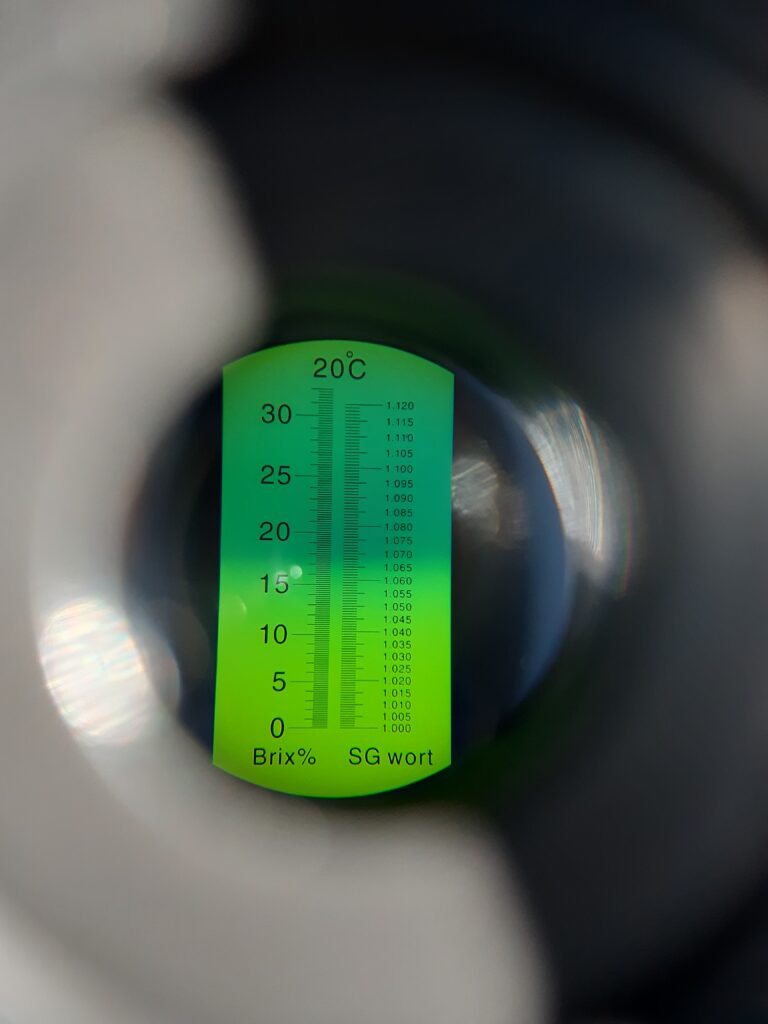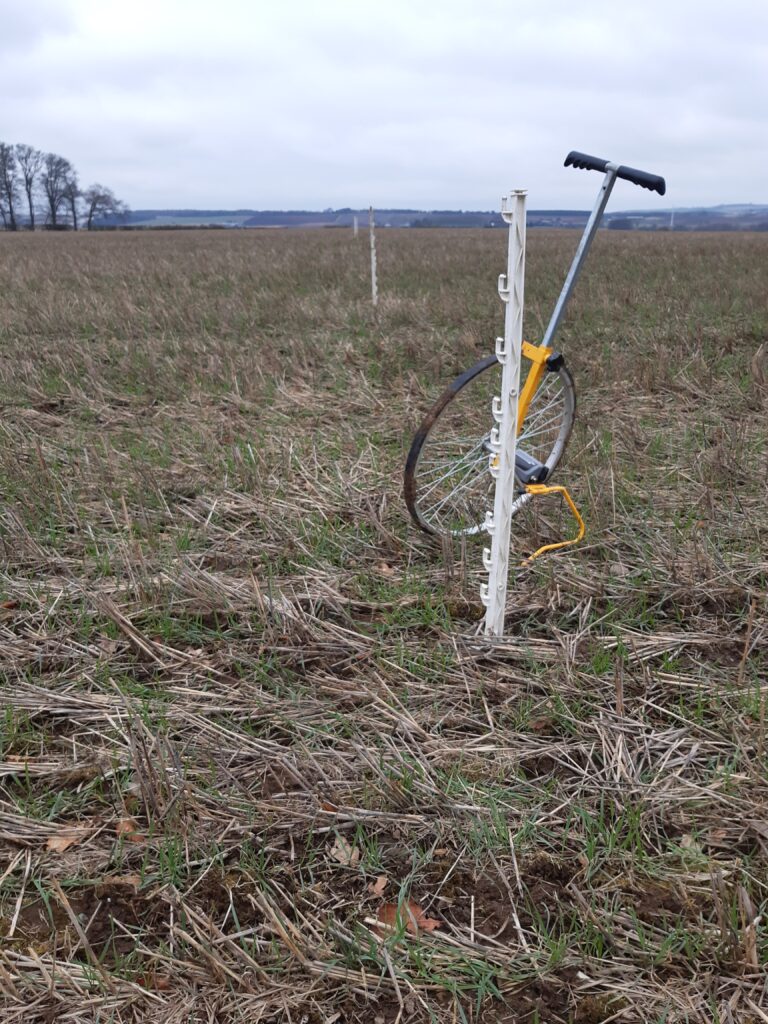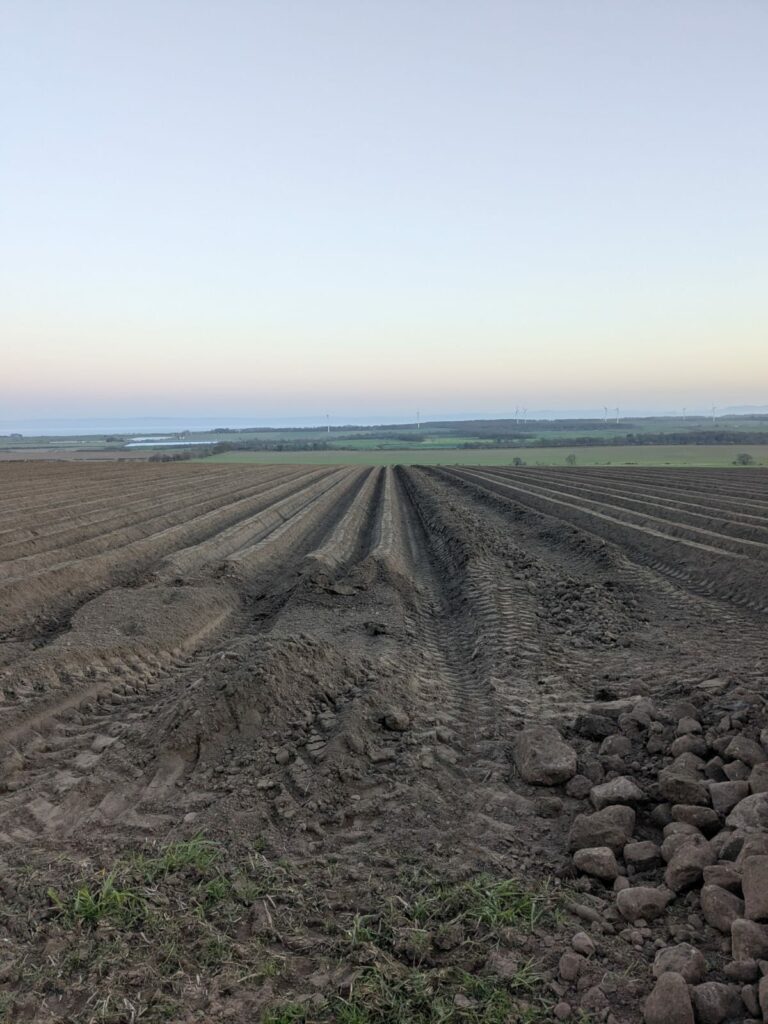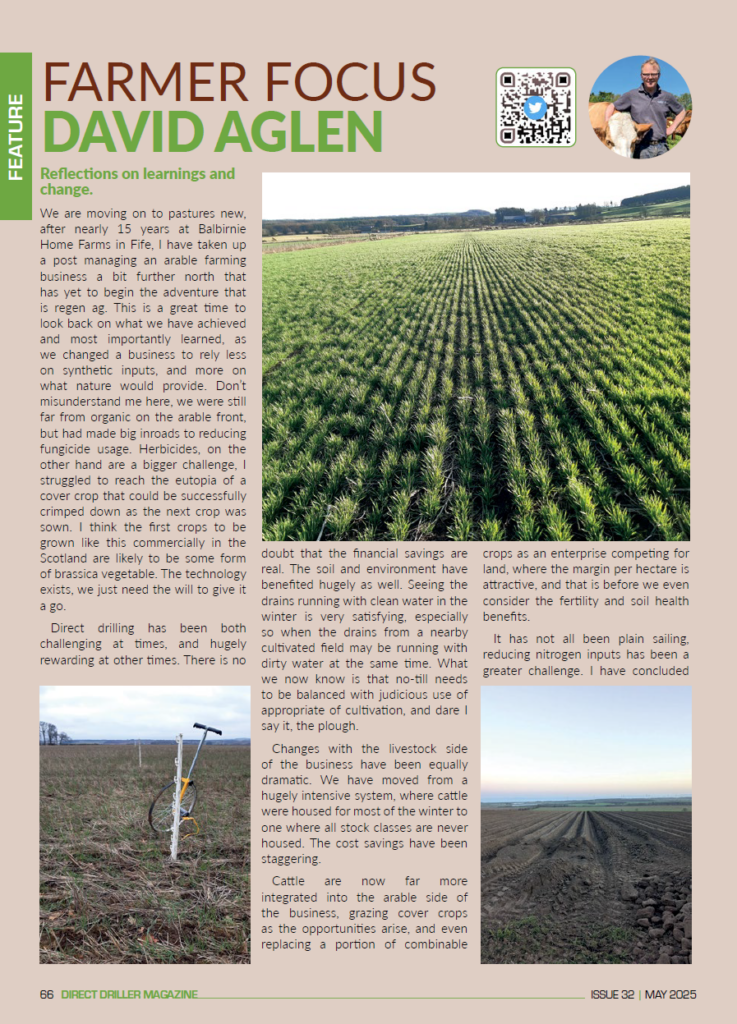Mar 2025
Reflections on learnings and change.
We are moving on to pastures new, after nearly 15 years at Balbirnie Home Farms in Fife, I have taken up a post managing an arable farming business a bit further north that has yet to begin the adventure that is regen ag. This is a great time to look back on what we have achieved and most importantly learned, as we changed a business to rely less on synthetic inputs, and more on what nature would provide. Don’t misunderstand me here, we were still far from organic on the arable front, but had made big inroads to reducing fungicide usage. Herbicides, on the other hand are a bigger challenge, I struggled to reach the eutopia of a cover crop that could be successfully crimped down as the next crop was sown. I think the first crops to be grown like this commercially in the Scotland are likely to be some form of brassica vegetable. The technology exists, we just need the will to give it a go.
Direct drilling has been both challenging at times, and hugely rewarding at other times. There is no doubt that the financial savings are real. The soil and environment have benefited hugely as well. Seeing the drains running with clean water in the winter is very satisfying, especially so when the drains from a nearby cultivated field may be running with dirty water at the same time. What we now know is that no-till needs to be balanced with judicious use of appropriate of cultivation, and dare I say it, the plough.
Changes with the livestock side of the business have been equally dramatic. We have moved from a hugely intensive system, where cattle were housed for most of the winter to one where all stock classes are never housed. The cost savings have been staggering.
Cattle are now far more integrated into the arable side of the business, grazing cover crops as the opportunities arise, and even replacing a portion of combinable crops as an enterprise competing for land, where the margin per hectare is attractive, and that is before we even consider the fertility and soil health benefits.

It has not all been plain sailing, reducing nitrogen inputs has been a greater challenge. I have concluded that, in the short term, this needs to be that last input that is reduced. We just need to find ways to minimize the waste that is inherent in the use of artificial N as well as growing and building more nitrogen building crops into our rotation. Perhaps these will take the form of summer cover crops cycled through livestock to generate an income, or more efficient ways to apply the artificial N that we do need to use.
Finding a good rotation has been challenging also. Vegetables and potatoes produce a good income stream and are good break crops, whether that be grown ourselves or renting out fields to others. The requirement for intensive cultivations is not so good though and seems to set the soil back a few years afterwards. The reality is that these crops are a food source and so need to be grown, the aim is to build the soil health back up again in the intervening years. This is where the judicious use of cultivation comes in to get the following crop established well to start the healing process, allowing the direct drilling to resume the second season after veg.


Of course, none of this would have been possible without the support of the Balfour family in allowing me to try things that were a bit different. And of course the team I leave behind, who have worked beside me, Colin Black and Grant Ross. Over the years they have had to endure endless experiments and mad ideas, as well as adding their own at times. Thank you all very much for the help and support over the years, and I wish you all the very best for the future.
And so now it is exciting to embark on a new challenge. Smaller in scale than I have been used to, and with no cows for the time being (looking forward to a few more weekends off though), but, size isn’t everything. I will be leaning on my peers in organisations such as BASE-UK to offer helpful suggestions as to how we proceed as the pressure both financially and environmentally is increased on our industry. I have no doubt that I will be hosting farm walks in the future, allowing me to pick peoples brains for new suggestions.


